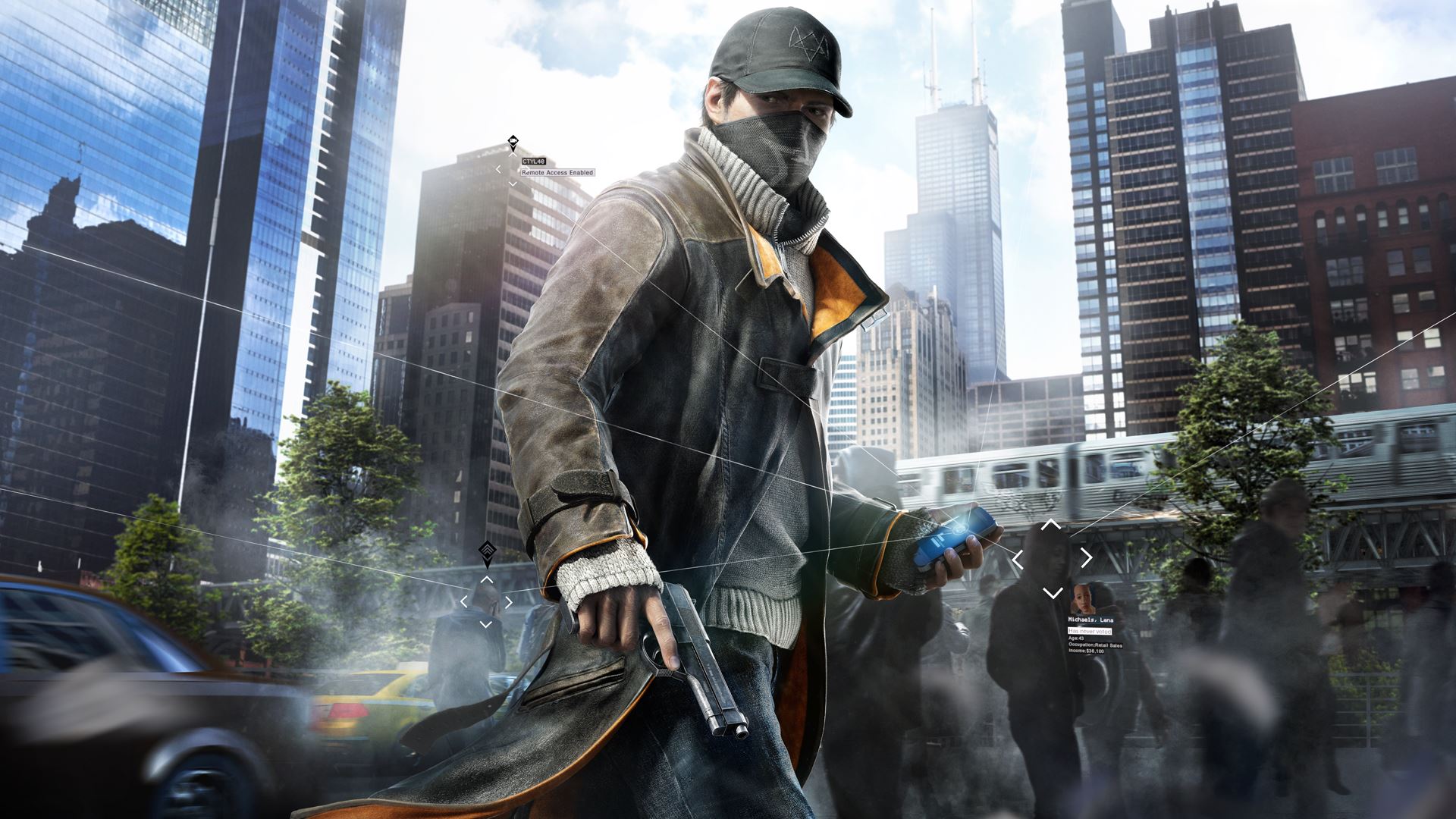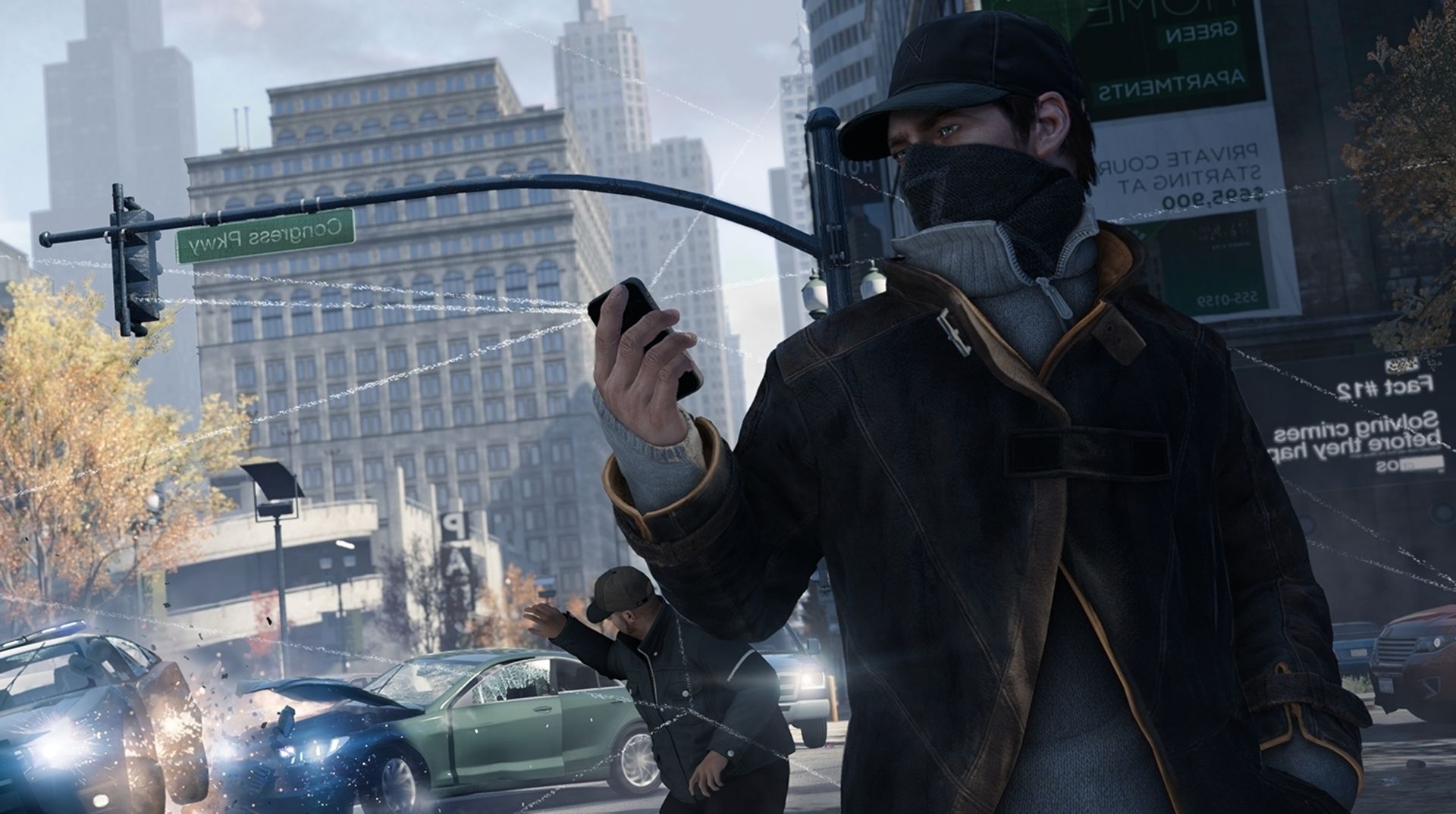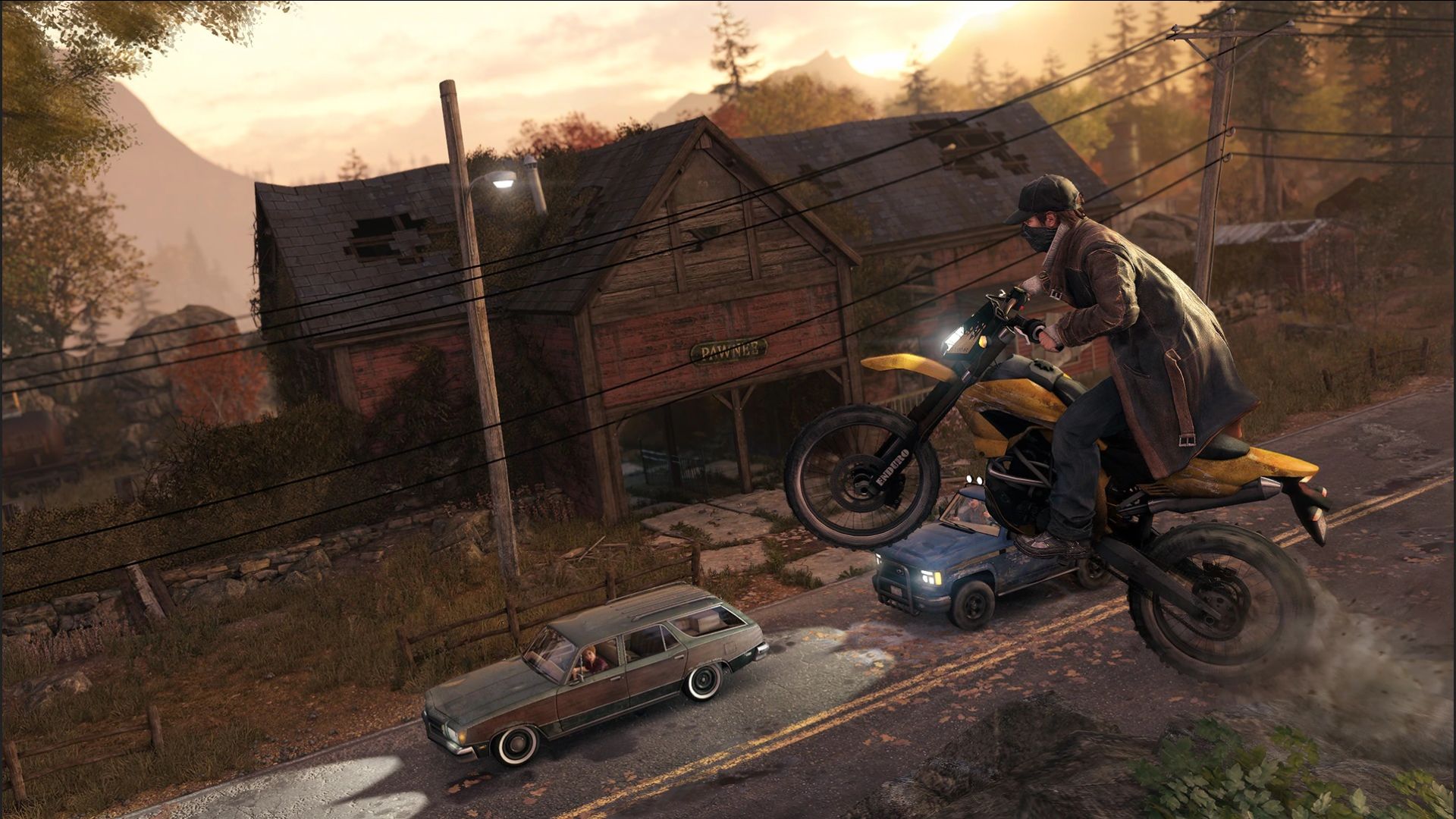
As someone who has spent countless hours navigating virtual worlds, I can confidently say that few games have managed to strike such a chord of relevance as Watch Dogs did when it was released back in 2014. Coming from a background where technology and its potential implications have always been a subject of fascination for me, this game felt like a prophecy come true.
Picture yourself pulling out your smartphone and, with just a few swipes, you’re in control of manhole covers, traffic lights, barriers, and drawbridges – or, less favorably, eavesdropping on conversations, reading texts, gathering personal information like age, address, occupation, or even withdrawing money directly from bank accounts with a simple thumb tap. Enter the universe of Watch_Dogs, where data is collected in bulk, surveillance is omnipresent, citizen safety is as fragile as a leaking inflatable boat, and digital security is merely a piece of tape covering the holes in that boat.
The capabilities demonstrated by Aiden Pearce, the player-controlled hacker in Watch_Dogs, and his advanced phone aren’t just futuristic technology. If a decade ago there was a slight possibility that your personal data could be extracted from a device you carried, that’s a much more pressing concern today. In fact, the most implausible aspect of Watch_Dogs’ hacking is how quickly it can occur. Even in 2024, it would take more than a few swipes on a smartphone to change traffic lights from green to red, but the power to do so was present then, and it’s exponentially greater now.
Discussing whether Watch_Dogs was visionary a decade ago isn’t about its graphics, gameplay, or specific details like its open world or hacking mechanics. Instead, we’re referring to the broader ideas it presented: the pros and cons of emerging technology, the vulnerabilities it creates through backdoors and potential security breaches, data leaks, privacy concerns, corruption in public institutions, and how these issues impact not just individuals but society and democracy as a whole.
In a fictionalized version of a future Chicago, where a single, all-encompassing system governs everything – from buildings and public services to citizens – reducing everything to mere numbers, lies the city depicted in the game Watch_Dogs. This setup shares striking similarities with the debated concept of smart cities emerging today. For instance, an emphasis on profit over safety might result in neglecting security measures, the populace potentially becoming overly reliant and dulled by technology, and excessive data gathering possibly leading to excessive surveillance of citizens. A significant concern with smart cities is that massive data collection and analytical analysis could pave the way for predictive policing or even misuse of power by law enforcement agencies.
In one of Watch_Dogs’ many side quests, our ambiguously moral main character has the ability to intervene preemptively against potential wrongdoers. These Crime Detected missions find him identifying and stopping delinquents before they act. When a popup alerts him, he can scan and analyze people in the vicinity, reducing the possible offender’s future actions to a probability percentage. If this probability exceeds 50%, it’s likely that action will be taken, as logic suggests there’s a higher chance of a crime occurring than not.

It’s doubtful that players will pause to ponder the ethical implications of such a game. To put it simply, Watch_Dogs is primarily designed for entertainment and these additional activities are quite enjoyable. However, one might question whether Aiden Pearce, a skilled hacker driven by personal vengeance, truly deserves the power he wields. If not him, then who? Is this a demonstration of advanced technology being used for noble purposes? Or, as some may argue, is there too much ambiguity in the percentage system to accurately predict someone’s actions before taking lethal action as a vigilante? After all, remember that this vigilante has the ability to drain money from your bank account.
In Watch_Dogs, the character Aiden is presented with moral dilemmas throughout the game. For instance, when profiling bystanders, it’s discovered that some are dealing with hardships such as child support issues, unemployment, or simply having a tough time financially. This may make you question whether stealing from them to alleviate your own guilt is justified.
This could be a point the developers were aiming to make though. Our expert hacker Aiden masks the bottom of his face and dresses in a dark trench coat. His accomplices sport tattoos and mohawks. They’re the stereotypical image of a hacker, one who’s more entrenched in criminality than using their skills to highlight technological concerns.
In the real world, some hackers are problem solvers. Read interviews with how lead developers together with his science-minded associates and you’ll see the developer’s stance isn’t to perpetuate the myth that hackers are exclusively wrongdoers. No, after attending DefCon – the annual US-held hacking conference – the developer learned that an idea for Watch_Dogs which the team deemed too extreme and cut from the finished game was in fact a real-life hazard that hackers were able to expose. The team brainstormed the idea of being able to access an in-game prison’s security system, but attendees at DefCon demonstrated that a skilled real-life hacker could indeed pull this off, unlocking cell doors, releasing inmates, inciting riots and escape in the process. Also, at DefCon, an attendee’s presentation consisted of remotely hacking into a US city’s traffic light system and controlling an intersection’s signals from miles away. The company responsible for developing this intersection’s traffic sensors were telephoned during the presentation but denied their system wasn’t encrypted.

In a different conversation, the developer expressed apprehension back in 2009 concerning the advent of smartphones, as they saw an enticing but uncertain future ahead. This apprehension played a significant role in shaping the foresight displayed by the game ‘Watch_Dogs’. For instance, just a year after the announcement of ‘Watch_Dogs’, there was a leak of highly confidential information about surveillance programs, and during the promotional phase of ‘Watch_Dogs 2’, controversies arose regarding social media’s impact. It’s important to note that these events weren’t predictions made by the developer, but rather outcomes from thorough research. The technology integrated into the game mechanics was always based on real-world scenarios.
As a die-hard fan, let me say that what I adore about science fiction isn’t just the flashy stuff like flying cars, laser guns, or neon-lit cities. For me, great sci-fi is all about reflecting contemporary issues and showcasing them in today’s world, or even in distant futures. It’s about taking these ideas and stretching them to their limits, delving deep into the consequences as we go. Sometimes it feels like art is eerily mirroring life itself.
In a refreshingly straightforward manner, the video game “Watch_Dogs” showcased its themes before they were commonly discussed, making them relevant even today. Although some of the depicted smart city concepts seem far-fetched, such as a metropolis controlled by a single operating system, the potential consequences of such scenarios are vividly portrayed in the game, creating an engaging yet unsettling experience. Drawing from real-world issues, “Watch_Dogs” exaggerates them to create a realistic-yet-uncomfortable depiction of what could potentially transpire.
Note: The views expressed in this article are those of the author and do not necessarily represent the views of, and should not be attributed to, GamingBolt as an organization.
Read More
- Forza Horizon 5 Update Available Now, Includes Several PS5-Specific Fixes
- Gold Rate Forecast
- ‘The budget card to beat right now’ — Radeon RX 9060 XT reviews are in, and it looks like a win for AMD
- Masters Toronto 2025: Everything You Need to Know
- We Loved Both of These Classic Sci-Fi Films (But They’re Pretty Much the Same Movie)
- Valorant Champions 2025: Paris Set to Host Esports’ Premier Event Across Two Iconic Venues
- Karate Kid: Legends Hits Important Global Box Office Milestone, Showing Promise Despite 59% RT Score
- Eddie Murphy Reveals the Role That Defines His Hollywood Career
- Discover the New Psion Subclasses in D&D’s Latest Unearthed Arcana!
- Street Fighter 6 Game-Key Card on Switch 2 is Considered to be a Digital Copy by Capcom
2024-12-17 04:41